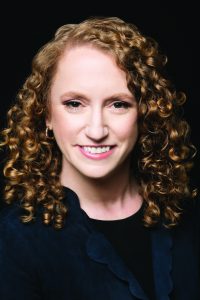The PEN Pod: A Reflection on Free Speech in 2021 with Suzanne Nossel

Photo by Beowulf Sheehan
Every Friday since March 2020, we’ve been discussing tricky questions about free speech and expression with our CEO Suzanne Nossel, author of Dare to Speak: Defending Free Speech for All, in our weekly PEN Pod segment “Tough Questions.” In our final episode of The PEN Pod, we spoke with Suzanne about what free speech looked like in 2021, from the Capitol Hill insurrection to calls to ban books and entire topics from America’s classrooms, as well as about Suzanne’s recent piece in The Washington Post unpacking the latest statements from Chinese tennis star Peng Shuai. Check out the full episode below.
On Free Expression and Disinformation in Washington
“For an organization that’s been working on free expression for a very long time, I would say perhaps never before in our public discourse—certainly not in my adult lifetime—has there been a moment where issues of free expression, open discourse, truth and fact, have been more salient to our politics and how we’re living our lives.
“After the 2016 election, we did a report called Faking the News , which was kind of the beginning of when this whole phenomenon of the modern wave of disinformation really rose to a level of widespread awareness, when people became cognizant of what had gone down during the election. . . . I wrote this introductory essay about the erosion of fact and the idea that news was no longer reported credible journalism, and also included this whole realm of the shadowy and the bogus.
“I teased out in my own head, and in this essay, what the ramifications of that could be. They were very far-reaching and scary. I talked about the idea that a major public health event response could be compromised if people stopped trusting in their government, and didn’t know what to believe, that the policymaking process would be impaired if we didn’t have a common fact base. What’s startling is realizing how much of that has come true in the ensuing five years, that that sense of alarm about what this could mean was absolutely warranted, and it has galloped forward. . . what has ensued has certainly brought these issues to the absolute forefront on the political end, on the public health end, and really in every part of our discourse.”
On Book Bans and Educational Gag Orders
“We say this at PEN America—that over the last several years, the threats that we’ve been fighting against around the world have landed on our own doorstep. We’ve felt that way with respect to President Trump and his assaults on press freedom and fact-based discourse, but it’s really metastasized, to the point where we now have these incredibly censorious movements taking hold in state legislatures, in school boards, and school systems. I think it is something new. Yes, schools have been sort of a culture war battleground, but the intensification, the use of legislation, and how quickly it’s spreading, how orchestrated it is—all of that is new.”
On Peng Shuai, and Separating Fact from Fiction
“The Chinese like to force confessions, they like to force recantations. The practice is so widespread that there have been dissidents who record videos before they get picked up and arrested to say, ‘Anything that I say in a future video, please don’t believe it, because there’s every likelihood that it’s going to be coerced,’ and they leave those videos with their family to be put out there, to uphold their integrity in the event that they are forced into a confession. The sports world would like to believe this latest from Peng Shuai, but there’s just every reason not to.”






